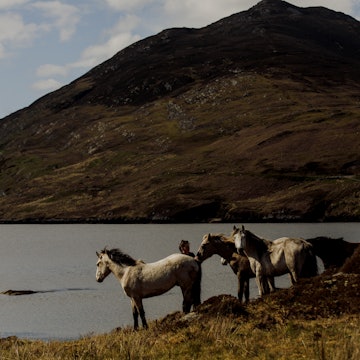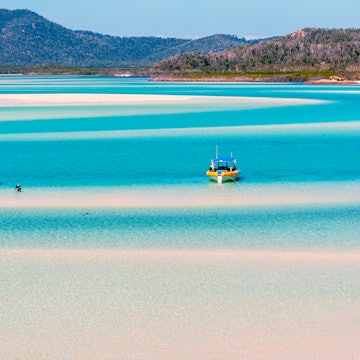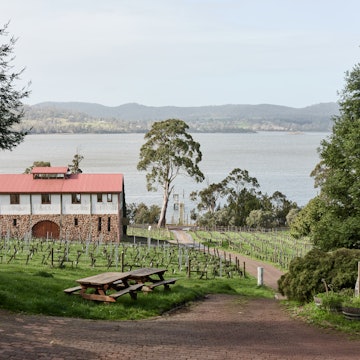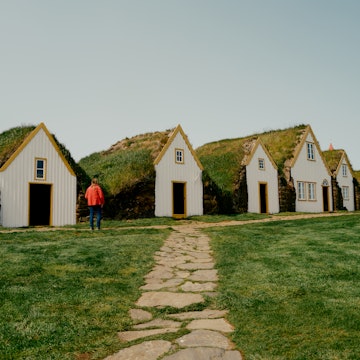

Coogee Beach, Sydney. Isabella Moore for Lonely Planet
Like most Australians, Sydneysiders are a friendly lot who genuinely want travelers to have a good time and take fond memories home with them.
Even so, Sydney is the biggest, busiest and most cosmopolitan city in the country. Locals are often in a rush, and the scope of the place can overwhelm even experienced travelers. So it helps to be prepared before you touch down.
From packing lists to transport logistics and local etiquette, here are some key tips to know before your arrival in Sydney.
Planning for your trip to Sydney

1. There’s no need to overpack
You won’t be embarrassed if you dress up or dress down in Sydney. Sydneysiders are stylish on the whole – but they prefer to keep it casual, as if they’ve stepped off a yacht on the way to the opera.
It does get cool in winter – but not heavy-coats-chilly. A warm pullover or light jacket will be fine unless there’s an unusually cold snap. Even so, visitors from cold-weather countries who are used to insulation and central heating may find things cold indoors in the winter months. So packing a pair of slippers might be a good idea.
Sydney summers are hot and humid. Pack an umbrella no matter what time of year you visit: rain is a given in this subtropical coastal city. Ideally, don’t bring a plain black one (we explain why below).
2. Book top dining spots and accommodation in advance
Much of what you will do in Sydney will depend on the weather, which means too much preplanning may result in last-minute itinerary changes anyway. You probably won’t set off kayaking from Manly to a secret beach in high winds, while those rooftop sunsets are less fun in a heavy downpour.
However, if there are any destination restaurants you really want to go to – such as Bennelong at the Opera House; Saint Peter; or Oncore by Clare Smyth – book ahead, especially for weekends. The best-value accommodations will also get snapped up in the high season (the Australian summer months of December to February) or when major events are on, so get that sorted as soon as possible, too.
Note that demand spikes and reservations go fast and far in advance during the major festivals of Mardi Gras, New Year’s and Vivid Sydney.
Etiquette in Sydney

1. People are friendly
Sydney may be on a par with London, New York and Paris when it comes to big cities with big personalities. Yet Sydney stands out for the reputation of its inhabitants: it seems that the combination of sunshine, green space and an outdoorsy waterside lifestyle has made Sydneysiders generally happy and friendly. (Most of the time, that is.)
Be prepared to be asked all manner of personal questions, whether you’re waiting for a bus or picking up some supplies at the local store. If you’re used to living somewhere where people mind their own business, it may take you a few days to thaw out...but you’ll soon find yourself smiling at everyone you pass on the Bondi-to-Bronte walk, or asking a stranger “What’s in the bag?” – just like a local.

2. Australia’s history is complicated
Before it became Australia, this continent was home to around 500 separate lands; Sydney is on the traditional lands on the Gadigal people of the Eora nation. While many years of political activism have changed Australia’s relationship with its colonial history, the celebration of Australia’s Aboriginal continuing cultures is relatively new from a tourism perspective.
If you’re keen to learn more, there are a raft of ways to experience Sydney through the lens of Indigenous knowledges. Seek out Aboriginal Australian-led tours to deepen your perspective.
3. Do not litter...seriously!
If you want to be hated by the locals, drop some litter at the beach, on the street or in nature. In 1968, Australia launched an anti-litter campaign, Keep Australia Beautiful, that is still going strong. If you smoke cigarettes, take your butt with you. You should always “do the right thing” by tossing any items into bins designed for recycling or general waste.
4. Respect local honesty systems
Honesty systems work well in Australia. If it’s raining and you take your quality umbrella to a local bar, for example, you can dump it in the umbrella bucket (or on the floor nearby if that’s overflowing) – and it will still be there when you leave the bar hours later.
However, since plain black umbrellas do tend to all look the same, pack something bright and distinctive.

5. Don’t be scared of public transport
If you’re planning on exploring Sydney and its fabulous neighborhoods, public transport is likely on the menu. In Sydney, that often means a ferry
Many ferries have stunning views of the harbor, but be mindful should you want to take photos and wander around the outside deck. For locals, the ferry ride is their normal daily commute; they won’t appreciate travelers clambering over them. Also, always let everyone off before you attempt to board a boat, including the inevitable stragglers, as the gangways are slim.
With frequent departures (every 5 to 15 minutes), the 20-minute Airport Link train from the airport to the Central Business District might be the easiest way to get into town.
Make sure you have your Opal or contactless bank card ready to tap at train station gates or when boarding and alighting from buses. For trains, you’ll have to tap as you get on and off, and you may have to pay before you board. In general, locals aren’t too keen on people talking on mobile phones on public transport. Stick to texting.
6. Swearing is not intended to offend
It might be considered uncouth or rude to swear in many English-speaking countries. But in Australia, spicy language is part of everyday conversation – and even Australian parliamentarians are known to drop a swear bomb. That said, the “So where the bloody hell are you?” tourism campaign by the Sydney office of M&C Saatchi Group caused some controversy when it launched in 2006. So use caution if you think of blurting out swear words yourself.
Safety in Sydney

1. Swim sensibly, and don’t take risks
Don’t get into any body of water alone, since surf beaches can have strong rip currents and rivers, while lakes and ponds can have currents or obscured obstructions. At a surf beach, always swim between the red-and-yellow flags, which signify where lifeguards are on duty. These are placed in the safest area of a beach.
Between July 2024 and 2025, 357 people drowned to death in Australia (among countless other non-fatal but still grave “drowning incidents”) – a number that has seen an unfortunate uptick in recent years. Know your skill level and play it safe; you don’t want to risk it.
Oh, and there are jellyfish. If you get stung, rinse with water or vinegar (the latter is usually available at a surf lifesaving club).
2. Natural disasters and extreme weather are a genuine concern
Australia has been deeply affected by climate change and extreme weather events – even if the underlying cause is still open to debate for some Australians.
In summer, there’s a risk of wildfires. Thanks to the many pockets of forest in and around the city of Sydney, your trip could be impacted by the direct danger of fires or by smoke particles in the air. In the summer months, check New South Wales’ official fire-monitoring website to stay apprised of fire danger ratings.
A famous poem – My Country by Dorothea Mackellar – describes Australia as a land of “drought and flooding rains.” Sydney has had its fair share of the latter – 2022 was the wettest year on record, with flash flooding affecting the entire city.
3. Yes, you can drink the tap water
It’s fine to drink tap water in Sydney. If there’s any danger of contamination, you’ll hear about it: it’ll be a major national news story.

4. Protect yourself from the sun and the heat
Use sunscreen in Sydney, even in winter – for the sun is hotter and sharper Down Under. A sun hat is an even better idea in the scorching summer heat; take plenty of water if you’re walking anywhere. Look up the symptoms (and treatment) of heatstroke if someone you know is feeling unwell in the sun, as quick action is essential.
5. Be wary of scams, theft and pickpockets
As we’ve mentioned, Sydneysiders are super friendly – which can also lead travelers to let their guard down too easily. While you don’t need to be paranoid, do remain cautious when interacting with strangers, especially ones who approach you.
As in any big city, don’t wander around with valuables on display and don’t leave your phone or bags unattended. Generally, though, it’s pretty safe here.
If you receive text messages with links to a website, no matter how convincing (for example, supposed verification of your credit card), never click on the link. (Your bank would never send you a text with a link.) Online scams are very sophisticated, especially when you’re jet-lagged or simply in unfamiliar terrain.
6. In case of emergency, dial 000
When you dial 0-0-0, you’ll be asked what service you need – police, ambulance or fire. Lifeline’s telephone crisis support is available at 13 11 14 (24 hours a day, 7 days a week).























